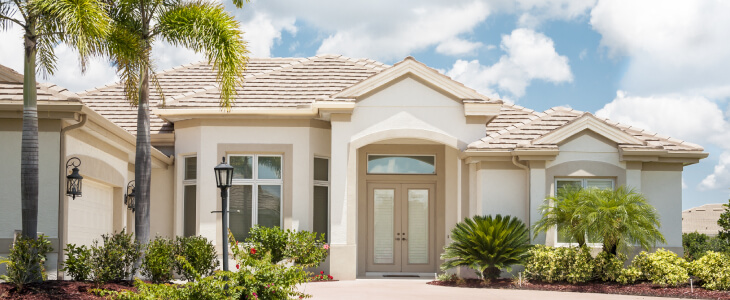Homestead property in Florida is treated differently than most other real estate once the owner passes away. If your loved one has recently passed away and probate is in your future, you will likely need to know what the terms associated with a homestead property mean. Life tenants, remaindermen, life estate – it can all be confusing.
Understanding the role you play with regard to homestead property can help you navigate the probate process more smoothly.
What is Homestead Property in Florida?
A property is considered a Florida “homestead” if it is owned by a Florida resident, and it is their primary residence. According to the Florida constitution, if you own homestead property and you have a spouse or minor child, you cannot leave it in your Last Will & Testament to someone else.
If you die “intestate” – meaning, without a valid Last Will & Testament – and your homestead property is solely in your name when you pass, then your spouse inherits the property. However, if you pass away leaving both a spouse and children, then your spouse will receive a life estate in your homestead property and your children will receive the remainder interest (i.e., the future interest). There are some exceptions to this rule, including that a surviving spouse can elect, within six months of the deceased’s death, to take a one-half interest in the homestead property instead of a life estate. This election must be made within the six-month time period.
What is a Life Estate?
When a surviving spouse has a life estate, it means that they are entitled to use the property for the remainder of their life, but they do not have 100% ownership of the property (i.e., fee simple interest). The 100% ownership of the property is carved out into two parts, one being the life estate interest and the other being the interest of the remainderman (the individual(s) who become the owners of the property once the life estate holder passes). Again, there are numerous rules that dictate how a homestead property is treated upon the owner’s death, including:
- Whether a valid Last Will & Testament exists;
- If the property was owned by the deceased spouse alone; or
- If the property was jointly owned.
Also called a life tenant, the surviving spouse has certain responsibilities and rights. For example, life estate holders in Florida must take care of the property. They are responsible for:
- Paying property taxes and insurance;
- Paying for repairs and maintenance; and
- Not causing any damage to the property or taking any actions that would cause it to lose value.
With these responsibilities also come certain rights, such as maintaining ownership of the property throughout their lifetime, making alterations to the property, and receiving income generated by the property.
What is the Role of a Remainderman?
A remainderman is the individual(s) that will receive the homestead property once the life estate holder passes away. The remaindermen are often the children of the deceased. They can also prevent the life estate holder from making any changes to the property that could lower the value of the home.
How Farshchian Law Can Help
If you have questions about the probate process or homestead property that your loved one left behind, Farshchian Law can help. To schedule a free consultation, call us at (800) 604-1871 or email us via our secure online contact form. We offer probate, real estate, and title services throughout the entire State of Florida.

